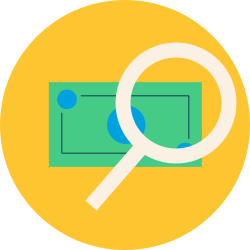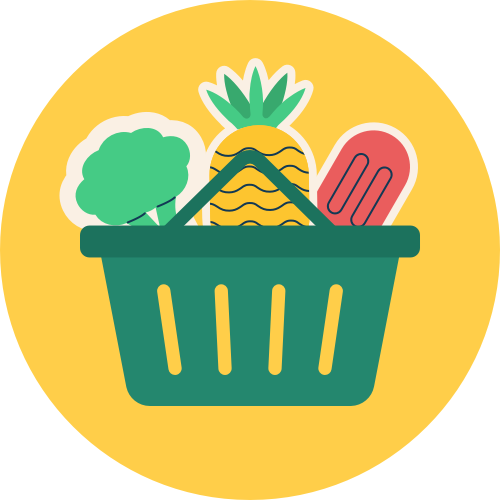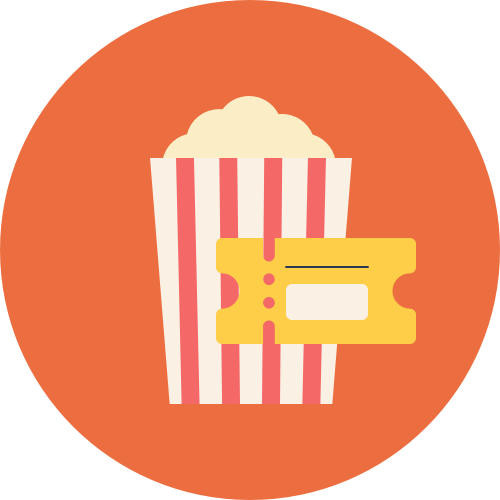Talking about inflation
Why talk about inflation?
A lot of good personal finance comes down to good planning. School-aged children will understand about saving up for things, and perhaps even how interest works, but they may not know about how prices change over time. Get them to understand inflation, and they’ll be better prepared for handling money in the real world, especially at the moment, when inflation is rising.
What is inflation?
Inflation is a general increase in prices. When a tyre or a balloon is inflated, it gets bigger; when prices are inflated, they get bigger (or more expensive) too. You may have noticed this happening with some of the things you like to spend money on. Do games, sweets, sports equipment, drinks or food cost a bit more now than when you first started buying them? You can put that down to inflation.
Inflation is measured in percentage increases across a year. If a new Lego set cost £100 in January 2021, and that price rose to £110 by January 2022, you could say that inflation for that Lego set ran at 10 percent during that previous year.
Why does inflation happen?
There are lots of reasons for inflation. Sometimes the raw materials used to make the things we buy (such as the metals in our phones) get harder to find, and so factories have to pay more just to get the same amount of stuff. Sometimes workers ask for higher wages, which pushes up prices. Sometimes it becomes easier to borrow money, so people are more willing to pay higher prices.
Is inflation bad?
Very high inflation is bad, because it makes it harder for people to buy the things they like and need. Inflation also makes people’s savings worth less. Why? Well, think back to that Lego example. If you had £100 saved at the beginning of the year, you could buy that £100 Lego set, but if you waited a few months, when the price had risen to £110, you wouldn’t be able to afford it any more. When the amount of things you can buy with your money falls, we say people’s purchasing power has fallen. That’s generally viewed as a bad thing.
Is inflation sometimes good?
For some people inflation is good. If you owe money, inflation makes your debts get smaller, as the amount you borrowed becomes worth less. Also, if you own something with a rising price, such as a house, you might be happy about house-price inflation, because the value of your house rises.
Factoids
Sometimes inflation goes sky high. Economists call this hyperinflation, and it’s led to some crazy events. In Germany in 1923, inflation was so bad, workers had to renegotiate how much they were paid every day.
In Hungary in 1946 the government had to issue a note worth 100 quintillion (1020) pengos, which was the currency back then. That’s 100000000000000000000 pengos!
In Venezuela in 2018 inflation was so bad that in the three months preceding the 18th of January the price of a cup of coffee rose by 718%. That makes for an annual inflation rate of over 440,000 percent.
Talking to your kids about inflation
Stuck for ways to discuss inflation with your children? Then try these talking points

Inflation and bank robbers
Some have suggested criminals are less keen to rob banks today, because inflation has made it harder to carry away a sizable amount of money. When the Wild West outlaw Butch Cassidy and his gang robbed their first bank in 1889, they were able ride away with $21,000, which is worth over £500,000 today. If they tried to carry that amount away these days it might well weigh over 25kgs – that’s heavier than a holiday suitcase!

Inflation and gold
Sometimes inflation can be caused by just one person. When the Malian king Mansa Musa travelled through Egypt in 1324, he spent and gave away so much gold that the value of the metal dropped, leading to a period of inflation that was said to last ten years!

Stagflation
If there’s one thing worse than inflation it’s stagflation. That’s when an economy stops growing or stagnates, but there’s also high inflation. Governments find it very hard to deal with stagflation because fixes that might sort out a flagging economy make inflation worse, and fixes for inflation can dampen down the economy.
Deflation
Deflation is the opposite of inflation; this is when prices fall, rather than rise. Sounds good, doesn’t it? However, it can be harmful too because, as prices and wages fall, people find it harder to repay debts. Thankfully, serious deflation is quite rare.
Having some fun with it
Try working a game into your chat about inflation. It’s a great way to learn

Basket of goods
When the government tries to work out inflation, it looks at the prices of things most people typically buy regularly, such as bread and soap; this is called a basket of goods. Different items come in and out of this basket of goods, to keep it up-to-date. What would you put in a kids’ basket of goods? What definitely not be in there? What would be the most expensive item?

Pocket money inflation
Workers often get a pay rise when inflation is high, so maybe pocket money should go up too? If you think you’re owed a little more thanks to inflation, why not work out how much you received when you first got pocket money, then calculate how much you should be getting today, if it kept pace with inflation? Try one of the inflation calculators in the useful links, below.

Fuel inflation
One of the places adults truly notice price changes is at the petrol pump. Fuel prices can rise and fall; they fell during the early months of the pandemic, then rose towards the end. Rising petrol prices contribute to inflation. Next time you refuel with your family try to work out whether the cost of a tank has risen or fallen. Extra points if you can work out the percentage difference!

Inflation and old money
Do you know how much a cinema ticket, an airline flight or can of coke cost when your parents were young? How about your grandparents? Ask your older relatives or check online. Then see if you can calculate the percentage increase. Different things have risen by different amounts. Extra points if you can work out how much kids in 20 or 30 years time might end up paying for a trip to the cinema. Again, try one of the inflation calculators in the useful links, below.


